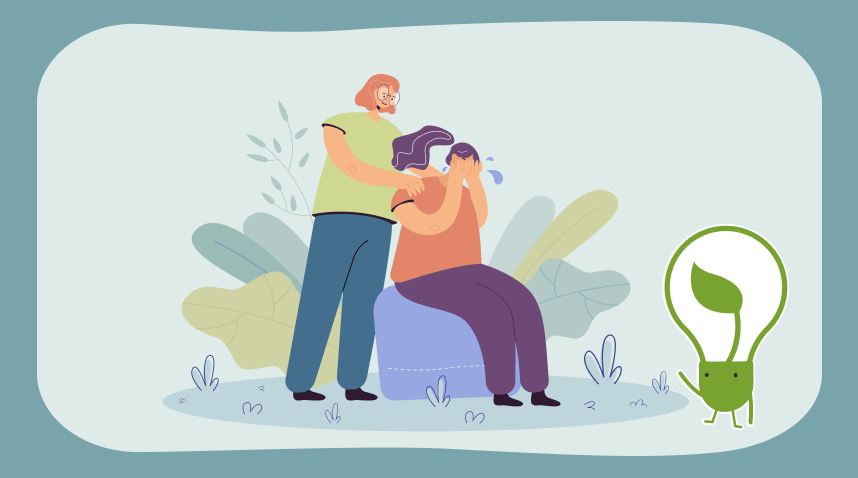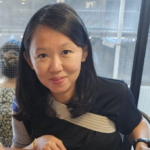In Loving Memory of: Sarah Chua
May you rejoice in the merits of this Dhamma contribution and be well and happy wherever you go.
TLDR: Joey shares her emotional journey following the sudden loss of a lifelong friend to cancer, leading her to embrace the power of gratitude and find deeper meaning in life.
The Shocking Diagnosis
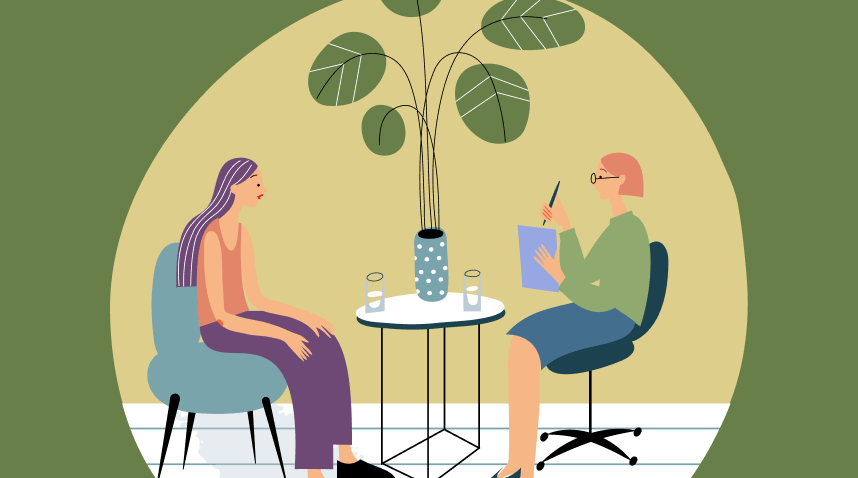
“Bad news, it’s a mass. Need to do biopsy now to check.”
It was a Whatsapp message from you. My mind went blank. I resisted the urge to Google “mass in lungs diagnosis.” I did not want my imagination to run wild.
After enduring a prolonged cough and episodes of breathlessness that persisted despite visits to several GPs, you went for a specialist check-up at a hospital and were admitted immediately.
A friendship that withstood time
I have known you since Secondary 1. Although we were not in the same class, we were batchmates in Girl Guides and our friendship blossomed. Over the next 25 years, we journeyed together through important milestones of our teenage years. Coming from dysfunctional families, we became each other’s confidantes and support when stressful incidents at home were too overwhelming.
I could not recall the exact number of through-the-night phone calls, late-night hangouts, or sleepovers we had. We sang, chatted, and watched TV, and only went home when the storms had fully subsided.
“I’m really very scared. My girl is still so young.”
This was your subsequent message before I could draft a comforting reply to your previous one.

Journeying through life’s milestones together
As we stepped into adulthood and got swept up in our careers, we did not meet as often. But we witnessed each other through major life events, celebrating our joyful moments and exchanging encouragements during challenging times — landing dream jobs, bad bosses, heartbreaks, death in the family, getting married, securing our BTO, and becoming mothers.
Our friendship had only strengthened with time, expanding to include our families. There is something magical about watching our kids play together. I fondly reminisced about the fun times we had during our youthful days.
I once told you that I hoped we would still meet up regularly for tea in our golden years to complain about our husbands, children, and perhaps grandchildren.
You said you imagined it would be hard to hold your tears in on your daughter’s wedding day.
Confronting the Unthinkable
“Likely is stage 4. I need to do chemo”
My heart sank. Thousands of thoughts ran through my mind. “But we are only 37. What about her girl? She is only 6. What is the prognosis? This is too sudden. This can’t be happening. Am I dreaming?”
“Thanks for watching over my child and family. Love you girls,” was your last message to me.
Over the next week, I watched you deteriorate rapidly, confined to the ICU, unable to talk or eat, and remaining sedated as cancer ravaged your lungs, stomach, and brain.
I always believed that you would overcome this, that you could return home and recover. I knew that you were strong-willed and you did your best. But health is beyond our control.
You left us one month after your stage-4 lung cancer diagnosis. It was too sudden, too unexpected, and too tough for me to accept.
Everything feels surreal. Seeing you lifeless on a hospital bed, surrounded by those closest to you. Your funeral. Your cremation. It’s like a bad dream unfolding, and I’m powerless to stop, wake up, and find relief in the realisation that it was only a dream.
Life, Death, and Illusions
Death is the one life event that will happen to us with 100% certainty. However, it remains an abstract concept for many. Why is that so?
Our brains are great illusionists, often failing to let us perceive the true nature of reality.
The human brain is programmed to draw from our lived experiences to create a neural map of our lives, incorporating relationships with people, places, things, routines, habits, and expectations.
It is a mechanism to help the brain “save computing power”, enabling us to make sense of and predict what is happening moment by moment. The possibility of your death was nowhere in my neural map; my brain needed time to assimilate this fact and rewrite its algorithm to navigate this world without your presence.
I hope that after my brain has integrated the code “death of a loved one”, I will gain a little more wisdom to be closer to ultimate reality.
Rewriting the Neural Map of Grief
The Buddha has taught us that life and all its elements are impermanent — fleeting, everchanging, illusory, and empty of inherent existence. This does not mean our experiences are unreal, nonexistent, or mere fragments of our imagination.
However, the way our brain is wired prevents us from seeing things as they truly are.
It tends to gather information through our five senses, making false assumptions and setting unreal expectations about how events should unfold or how our relationships with others should be. It likes to take shortcuts to conserve energy, clinging to an old mindset or defaulting to comfortable habits and routines.
Our brains want to exist in a predictable, permanent, and lasting world.
And so, we grasp, we chase, and we shun.
Seeking Meaning in the Midst of Loss
We pursue the next high-paying job, promotion, or the latest flashy phone, car, or house. We take for granted that our family and friends will always be there. We avoid discussing illness and death because we cannot imagine a future where either we or our loved ones will be gone.
Your death has prompted me to reflect on what makes life meaningful and where my priorities should lie.
If we want to have a better life with fewer regrets and more joy, we need to rely on the Dharma to overwrite the faulty algorithms in our brains.
“All with marks is false and empty.
If you see all marks
As no marks
Then you see the Tathagata.”
“There is no mark of self,
And no mark of others,
No mark of living beings
And no mark of a life.”
“All conditioned dharmas
Are like dreams, illusions, bubbles, shadows,
Like dew drops and a lightning flash
Contemplate them thus.”
Love Lives On
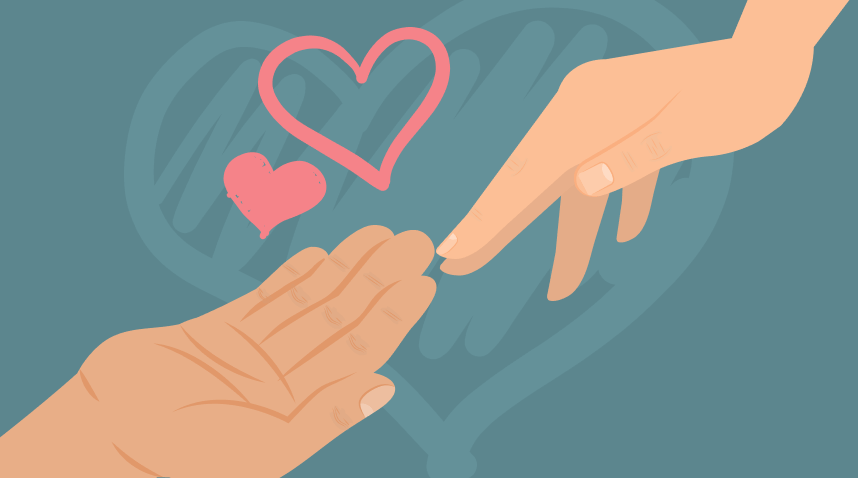
The first week after I lost you was excruciatingly painful.
My mind struggled to accept that you would be forever absent from my future. I believed we would have many more chances to continue our yearly tradition of surprising each other with birthday gifts and treats.
Now that you are gone, I wonder: do you know how much I love and cherish our friendship? I was engulfed by overwhelming loss and sorrow. Soon, this morphed into a feeling of unfairness. The cancer had stolen my best friend, robbing all hopes, possibilities, and dreams of watching the kids grow up as we grow old together.
“Grief is love with no place to go” – is a popular quote to describe grief.
As time passed, grief silently reshaped itself within the contours of my daily life. I found this quote untrue. While life comes to an end, love lives on. The love and connection we share live on within us. It endures even after death.
With your passing, our friendship has transcended beyond the physical dimension of space and time, transforming into a spiritual relationship. You remain my best friend in this lifetime. I express my love through internal dialogues with you, often wondering about your journey in the next life and dedicating prayers, well-wishes, and merits to you.
In our physical world, where most relationships are transactional, our understanding of love can be restricted. Our expressions of love are sometimes limited to tangibles such as gifts, time, and physical touch.
The Buddha taught us about love and compassion, which is the wish for sentient beings to be free from suffering and attain happiness. A concept that is easy to grasp but difficult to embrace. If we ponder closely, love and compassion are a spiritual state of mind more than they are physical actions.
“The space is boundless,
So does your compassion.
You wish to be all living beings’ bridge [to the other shore],
so that you manifest your Bodhi-Practices.”
Gratitude Creates Meaning
It was 4 am and I lost sleep. It was the first night after your passing. You were such a devoted mother, dutiful wife, responsible worker, and one of the kindest friends I ever had.
Why did this have to happen? I have always believed that every significant person and event in our lives is there to teach us important lessons.
Yet losing you so suddenly to cancer seems senseless. We did not even get to say a proper goodbye. I kept questioning myself repeatedly: what was the lesson I needed to learn? I just could not fathom it.
We had been a part of each other’s life for 25 years and remained so close. It felt like a beautiful story which needed to end abruptly and the author struggled to write a conclusion to make it a meaningful read.
As I lay in bed, a deep sorrow gripped my heart tightly. The intense pain in my chest grew every minute, making it hard to breathe. It was too unbearable.
At the next moment, I felt love surrounding me and then enveloping me. It was a peaceful and kind energy that wrapped around me, consoling me with its warm presence, telling me that it knows my pain and suffering. That this too shall pass.
Gradually, the tightness in my chest subsided. I felt lighter. Tears flowed freely, and gratitude surged through every cell in my body. I was certain it was you. I finally knew what the lesson was.
It was friendship.
Appreciating Life’s Beauty & Moments
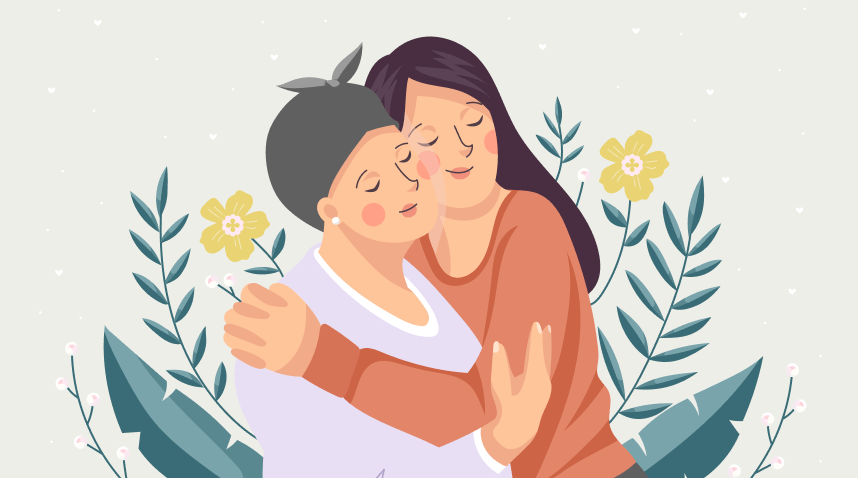
Through you, I learned what makes a good friend and how to be one. Our precious and beautiful friendship had enriched my life and for that, I am immensely grateful to you.
Over the next few weeks, this gratitude took root and grew. Alongside grief, I experienced a renewed sense of appreciation for events, objects, and people in life.
Saudade is a Portuguese word that describes a longing for something that has been loved and lost, yet it also captures a sense of joy for having been loved and lost. This “joyful sadness” described my feelings perfectly.
Allow saudade to sit and experiencing it fully within me has given me insights into life.
Life’s meaning is not something to be found; it is created moment by moment in our everyday lives, and gratitude fuels it best.
Gratitude as a Way of Life
Gratitude gifted me with fresh eyes to perceive the beauty and qualities in objects, people, or moments. It helps me to slow down, be present, and be thankful for the good and bad that enter my life.
Gratitude makes the most routine, mundane, or dreadful tasks meaningful. While waiting patiently for my morning coffee, I silently expressed thanks for all the elements that made it possible for me to enjoy my drink. Not taking things for granted makes my life more vivid, rich, and meaningful. My coffee tastes much better now.
Perhaps if we consider gratitude as a way of life more than just a feeling or mental state, our lives will have more bliss, peace, and meaning.
In gratitude, I see you. In gratitude, I see our interconnectedness. In gratitude, I see the Dharma.
Wise Steps:
- The love and connection with our departed loved ones transcend physical existence and transform into a spiritual relationship. We can dedicate merits and well-wishes to benefit them in their next life which helps us find solace in grief.
- Our brains are masters in creating illusions which obstruct our perception of reality’s transient and ever-evolving nature. By embracing self-awareness and applying the teachings of the Dharma, we can reduce regret and cultivate greater happiness.
- Gratitude is a powerful tool for healing. It can help us find a renewed sense of purpose and appreciation for life even during the toughest times.

